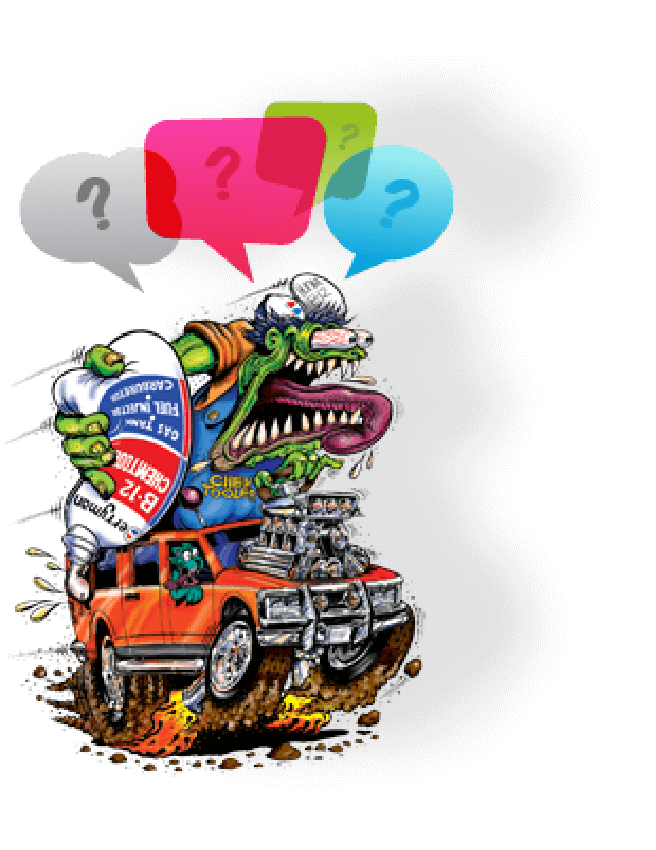Your bottles have very specific instructions, yet seem to contradict one another sometimes. I don't have them in front of me but seem to recall your flagship product 0116 is basically 1ounce per gallon (16oz btl) but your 3012 "Super Concentrated" is "double the strength" I believe was the wording, so that would be 2oz per gallon.
So that begs the question, How concentrated can we go and; either not hurt the engine or send too much bad stuff down stream to the cat. conv. and sensors and "foul them up" in a sense, etc... And if we did send too much down stream too fast couldn't we just continue with the product until it cleaned it out as well?
I have a 200,000mi Acura V6 that I ran Premium in for the 1st half of its life but Regular the 2nd half. (never did notice a difference) Anyway I'm getting religion now and want to repent so I thought I would buy a gallon or 5gal container (I have two cars) and put 15/30/45/60oz in every tank full. How would I know when the job is done? I figure if I experience poor performance or a Evap Cat. Conv. error code (check engine light) that I would load a tank up with 45+oz. and take it for a 30+ drive on the highway and try to blow it out. Thx
1 Answers
Berryman B-12 Chemtool Fuel System Cleaner (part #0116) is recommended at a maximum of 1 oz/gal (15 fl oz treats 15-21 gallons of gasoline). Anything greater than that would exceed the concentration approved by the EPA for that product; however, the product is generally safe at concentrations 2-4x that level.
As for Berryman B-12 Chemtool Concentrated Intake Valve & Fuel Injector Cleaner (part #3012), the maximum recommended concentration of that product is also 1.0 oz/gal (12 fl oz treats 12-20 gallons). Again this concentration is a function of EPA registration. While there would be little benefit to it, running the product would at concentrations 2-4x higher is still expected to be safe, even on cats and sensors. Regarding the verbiage “double the strength,” our current label does not contain that statement.
As for the check engine light and catalytic converter, if there’s no mechanical problem with the fuel system, i.e. bad injector, broken plug wire, etc., then the CC should be in good shape and quickly able to “shake off” any excessive emissions on a drive like you’re talking about. It’s only when there has been an on-going problem that the CC is at risk of irreparable damage.
Please login or Register to submit your answer

